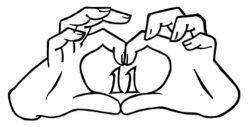The Three Lions defied all expectations at the World Cup by reaching the semi-final and breaking England's penalty shootout hoodoo along the way. We also saw Jesse Lingard celebrate his group stage goal against Panama with his 'trade mark' 'JLINGZ' celebration — and this got our Trainee Trade Mark Attorney, Akber Ahmed, thinking about the relationship between football and IP...
When you think of footballers and trade marks, you might picture a quality, skill or celebration associated with a certain player. For example — David Beckham scoring a goal with his 'trade mark' free kick; Diego Maradona's pumped chest as he gallops down the field; Cristiano Ronaldo's classic wide stance before he laces a free kick in the top corner (or into row Z); or, in a slightly less prestigious bracket of footballer, Kevin Nolan's 'chicken dance' celebration.
The world of football has developed immensely over the past twenty years or so, coinciding with increased attention from the media and huge increases in advertising revenue for the sport. Riding on this wave, many IP-savvy players have sought to capitalise on its popularity. Many have successfully developed their own unique brands and even secured trade marks for signs, emblems and words to protect their image.
Recently, Jesse Lingard filed four applications to trade mark his goal celebration. These comprise of the mark 'JLINGZ' and images of his celebration. With this in mind, I thought I'd take a look at some of the different marks that have been registered by football players over the years.

What is a trade mark?
According to the Trade Marks Act 1994, a trade mark is any sign capable of being represented graphically which is capable of distinguishing goods or services of one undertaking from those of other undertakings. A trade mark may, in particular, consist of words (including personal names), designs, letters, numerals or the shape of goods or their packaging.
Examples would be the name 'NIKE' or the Nike 'Swoosh'. The proprietor of a registered trade mark has the exclusive right to use it and their rights can be infringed by any use of the trade mark in the UK without consent.
You're only able to trade mark something if it's capable of differentiating your goods and services from other goods and services.
Football trade marks
Most footballers register trade marks to ensure they benefit financially from merchandise sales, third party licensing deals and collaborations with famous brands. Today, it's common for footballers to use their commercial nous (or that of their advisers) to develop their global brand — here are a few examples:
Eric Cantona
Cantona is regarded as being one of the first footballers to register a trade mark. He registered the famous chant 'OOH AAH CANTONA' in 1997.
David Beckham
The footballer who first seized the opportunity to create a truly global brand was David Beckham. He has a huge list of registered trade marks, including BECKHAM, DAVID BECKHAM RESPECT, Beckham Free kick Logo, DB07, DB23 and (my personal favourite) SMOKEY BECKHAM. Smokey Beckham was assigned to Becks in 2001 following a legal dispute with Jerome Martin, a Kent-based businessman who had attempted to trade mark 'Smokey Beckham'. Walkers, the crisp manufacturer, had previously enjoyed success with this approach — its marketing campaigns after the 1998 World Cup featured England strikers Gary Lineker and Michael Owen, resulting in the flavours 'Salt and Lineker' and 'Cheese and Owen'.
Lionel Messi
Five-time Ballon d'Or winner Messi has recently registered his name as a trade mark after a seven-year legal battle. His original application in 2011 was challenged by a Spanish cycling brand, which was the proprietor of the mark MASSI. It argued that the names were too similar and would cause confusion. However, the EU's General Court ruled that the footballer was way too famous to be confused with a cycling brand. Messi owns 76 registered marks, forming one of the biggest portfolios in the sport.
Cristiano Ronaldo
Ronaldo has fewer registered marks (which, of course, puts to bed the debate about who the greater footballer is). However, he's taken a huge step by expanding his brand, teaming up with a Portuguese hotel group, Pestana. He has opened Pestana CR7 in his hometown of Funchal, on the island of Madeira. He has registered the marks CR7, CR9 and CRISTIANO RONALDO.
Harry Kane
Kane (the leading scorer so far in the World Cup) also owns a trademark, compromised of his initials HK and HARRY KANE beneath it.

Gareth Bale
The Welsh winger registered his goal celebration in 2013. It comprises an image of hands shaped into a heart, with the number 11 in the middle. He actually surrendered this mark later on that year.

Why register a trade mark?
Registration gives the owner exclusive use of a mark in the territory where it is registered in connection with the goods or services indicated in their application. This can prevent anyone from subsequently using the same or a confusingly similar mark.
Without a trade mark, most of these footballers would need to rely on unregistered rights, which can be difficult to establish and enforce. It is also an innovative way to capitalise on your popularity — a trade mark helps to ensure that you can control and profit from your fame and achievements.
Many footballers use their trade marks to sell merchandise and be in a better position to license their marks to third parties. This is best illustrated with Messi's mark on his F50 Adidas football boots.

David Beckham also did this by using his Beckham Free kick Logo on the Adidas predator football boots that he himself wore.

Additionally, Ronaldo has added the mark CR7 to his Nike
mercurial football boots over the past few years.
Ronaldo and Beckham even use their brand image to promote aspirational brands like Armani and Calvin Klein. This is an effective way of generating consumer recognition. Similarly, Neymar (with the mark NJR) is considered to have one of the biggest brands in football, competing with the likes of Ronaldo and Messi by collaborating with global brands like Beats by Dre and Jordan.

Register early (to avoid disappointment...)
It is always best to register a trade mark early to avoid the possibility of an application being rejected on the basis that it is descriptive of the subject of the goods. This is best illustrated by the decision involving the mark ALEX FERGUSON. This case involved one of the best managers of all time (as much as it pains me to say that, as a Blackburn Rovers fan) Sir Alex Ferguson and his trade mark application for his name ALEX FERGUSON.
Sir Alex applied to register the trade mark ALEX FERGUSON in classes 6, 9, 14, 16, 25, 28 and 41. Following an objection under Section 3(1)(b) and (c) of the Act, the application was divided into two parts, namely 2323092A and 2323092B. Application 2323092A proceeded to registration. However, Application 2323092B, which was in relation to printed matter (posters, photographs, transfers, stickers, decalcomanias), was rejected — due to be being devoid of any distinctive character and descriptive of the designated characteristics of the goods in question i.e. goods that were about or features Sir Alex.
According to the Trade Marks Manual of the UKIPO, for image carriers, the name of the famous person or group is likely to be seen as the subject matter of such goods — and objections under sections 3(1)(b) and (c) will be appropriate.
However, the term 'famous' is particularly important in this issue. It was explained in the hearing that "The more famous the personage(s) or event(s), the more likely it is that there will be a market for such goods and the less likely it is that the name will be regarded as acceptable for registration in relation to goods of that kind on the basis of the approach currently applied by the Registry in the United Kingdom."
The manual also explains that a person who enjoys limited fame may be able to get his name registered in respect to the goods or services mentioned. A prime example would be Jermaine Jenas. He managed to register his name, JERMAINE JENAS, in respect of printed publications and posters, where the mark ALEX FERGUSON was not. This raises the question of what constitutes 'famous'? The Trade Marks Manual points out that you should do an internet search to see if a person or group is famous — but it doesn't set out certain requirements or indications as to who would be considered 'famous'.
Register around the world
Similarly, if you're going to be a global superstar, it's always best to register around the world to prevent 'trade mark trolls' from profiting on your popularity. Three major football stars found this out the hard way in 2006. Companies based in China registered the names of Iker Casillas, Philipp Lahm and Cristiano Ronaldo as trade marks for their products. This resulted in the creation of a Saint Iker Jewellery, Lahm Pesticide and a C Ronaldo Flush Toilet.
Footballers' rights with their clubs
Typically, football clubs try to extract a greater percentage from the image rights of a player. This always concerns the issue of wage structure between the footballer and their club. Manchester United, Chelsea, Barcelona and Real Madrid (to name a few) all demand a player's image right as part of their contract. However, other clubs are more than happy to claim a minimal share, as both parties understand the revenue that can be generated from the commercial exploitation of the rights.
In 2006, David Beckham demanded that Real Madrid should give up its 50% share of his image rights, leaving him 100% of all profits. Real Madrid refused and he left the following season for LA Galaxy1. He signed a five-year contract in the USA worth £128 million. Through this contract, he achieved what he couldn't at Real Madrid, which was to have complete control of his image rights. Beckham's case is archetypal because, as a result of the deal, he could control how and when his image was used, highlighting a shift of powers between clubs and footballers.
The importance of branding
As you can see, trade marks and brands are vital today, especially with the growth of social media, which has helped businesses to mark their brand and communicate with millions of people. In terms of registering marks, you should always register early and around the world to ensure your rights are protected.
Footnote
[1] Lawrence I (2013) 'The Legal Context of a Player Transfer in Professional Football: A Case Study of David Beckham' 11 The Entertainment and Sports Law Journal 6.
The content of this article is intended to provide a general guide to the subject matter. Specialist advice should be sought about your specific circumstances.
